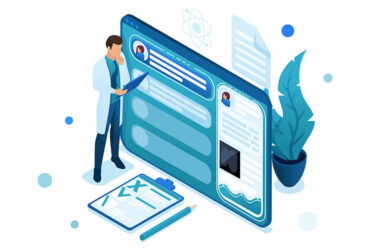AI-based systems are helping healthcare startups detect medical problems at a higher speed. Diagnostic errors in the field of radiology were reduced by 30 percent with the help of AI tools, a 2023 study published in the Journal of the American Medical Association concluded. With that fall, doctors have more time and patients are treated without any delays.
Plus, the machine learning models have the capacity to scan thousands of images in a few minutes and flag the areas that require consideration. Such pace results in increased number of tests reviewed and greater sense of safety in patients about the treatment scheme.
Individualized Treatment Plans
Most of the small firms have set up software that provides individual plans to each patient depending on his/her information. As an example, AI reads past visits, laboratory values and daily activity records. In a survey conducted by Deloitte, 45 percent of healthcare startups in 2024 utilize machine learning in determining medication selection and scheduling therapy routine.
Such specificity aids the physician to change doses and periods of therapy without having to adhere to predetermined principles that suit all. The patients say that they feel more listened to when their plan considers their individual history and lifestyle requirements.
Optimizing Remote Patient Monitoring
Wearable gear has been developed under startups that transfer health data in real time to cloud servers. Such systems indicate to doctors that readings are not in safe limits. As McKinsey has stated, the usage of telemedicine platforms built on AI increased by 60 percent in 2022, and this proves that patients and providers can rely on the tools. And AI can study trends over weeks, so it predicts when a patient might need extra care. Alerts push to care teams who call patients to check on symptoms before they worsen.
Streamlining Administrative Workflows

Another area where young firms use AI is managing paperwork. AI bots now read and sort insurance claims, freeing up staff for tasks that need human judgment. A report by Accenture estimated that automating these operations could save the US healthcare system 18 billion dollars by 2025.
Startups train AI to understand patient files, assign codes, and even draft letters for referral. This reduces the chance of human error and speeds up approvals for tests and treatments.
Supporting Drug Discovery and Research
Several firms employ AI to search chemical libraries and propose new compounds faster than traditional methods allow. Using these systems, researchers save months on early testing steps and focus on the most promising candidates. And when studies wrap up, AI helps write reports by highlighting key findings, giving scientists more time to plan trials and engage with patients.
Expanding Telehealth with Smart Assistants
Virtual care platforms now include AI chat tools that answer common questions and triage symptoms. Patients can log pain levels or upload photos of skin conditions at any time of day. The system offers advice on next steps and schedules appointments if needed.
Data from a 2024 Forrester study showed that AI chat assistants handled 40 percent of initial patient interactions for startups, cutting waiting time in half. And clinicians receive summaries of these chats before they meet the patient live, so they arrive prepared.
Ensuring Data Privacy and Security
Handling sensitive health records means startups must protect data fiercely. AI-driven encryption methods guard data in storage and in transit. Some firms use anomaly detection algorithms to spot unauthorized access within seconds. For instance, a 2023 cybersecurity survey found that AI tools blocked 70 percent of suspicious login attempts in medical networks. By building these protections into their platforms, startups earn trust from patients who worry about leaks or hacks.
Partnering with Hospitals and Clinics
Rather than working alone, many startups team up with established health systems to test AI tools in real settings. Hospitals provide real patient data under strict privacy rules, and startups refine their algorithms based on live feedback. One midwest health network reported that an AI triage tool cut emergency department wait times by 20 percent in a six month trial. These partnerships help startups scale their solutions and give hospitals a way to try new tools without major upfront investment.
Facing Challenges and Finding Solutions
Startups working with AI face hurdles in gaining regulatory approval and meeting quality standards. Regulators require evidence that an AI model works safely and reliably. To meet these rules, firms run pilot studies, gather performance data, and engage outside experts. A 2023 FDA review showed that AI products seeking approval now spend an average of nine months in clinical testing, which is down from twelve months two years earlier. That shift means startups learn to build trials that satisfy both doctors and regulators more quickly.
Looking Ahead: The Road to Better Care
As AI tools prove their value, more startups will enter the field with new ideas for patient support. Plus, patients now expect digital options that adapt to their needs and respond at any time. And healthcare workers gain tools that take over routine tasks so they can spend more time with patients. With both sides ready for smarter systems, the health sector moves toward a future where care feels more connected and timely for everyone.









